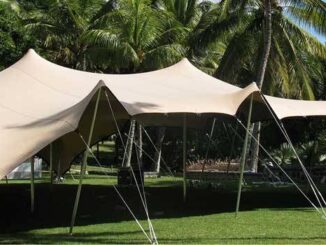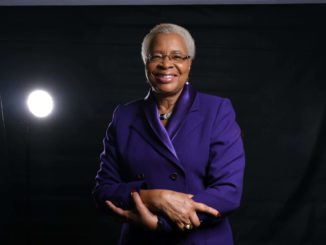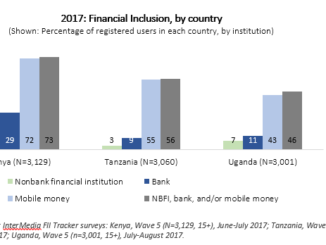
Africa with its diverse cultures and unique worldviews has its own sources in discussing God. Any guide to the pursuit of an African Theology in the Christian tradition needs be surveyed from God’s perspective with an underlying African worldview.
Biblical Christian theology has its base in the Bible and to some extent, systematic theology takes some its influence from the accepted ecclesiastical traditions during the immediate post resurrection age. The Bible and church tradition form the two principal sources for accepted Christian theologies in the different sects and denominations.
The discourse on God regarding African tradition has long been a mix of oral tradition and experience passed on through ages. In addition the influence of the two major religions of the world plus cultural factors also contribute to this discourse and of vast influence is traditional religion itself.
The lack of documentation of any form of religious literary corpus has made African traditional religion to be subjected to a lot of criticism, doubt and descriptions. Some refer to traditional religious practices as animism or heathenism. But it should be noted the religious practices of pre Christian Africa should be accepted as a reflection of past experiences, which have been inherited.
The call for an African theology should ignore these factors. Additionally, the sources; from which Africans have experienced the phenomenon of the deity will contribute a lot to the expression of any theology that may ensue. There is always the impossibility of an “out of the blues” theology because Christianity in its essence is a historical religion. The sources of African Theology though not acceptable in some Christian quarters are very important in doing theology.
Nature
Omasogie says, prior to and including the medieval period when Christian came into its own in Europe, there was no serious problem in accepting the reality of the spiritual realm. Under such an atmosphere it was easy to sense the presence of God in nature and to symbolize that presence in the use of material elements, which were regarded as concrete tokens of his presence.1
In simple terms, nature served as a revelatory factor in comprehending to some extent the Supreme being. There is no different thought in this perspective with regards pre Christian Africa. Whatever discussions or evaluations were made of the Supreme being, were by virtue of observing nature and its activities in the absence of any written scripture about God and creation. Therefore, there are a variety of stories in African traditional religion about God, creation, man, etc.
For instance, rain is regarded as one of the greatest blessings of God. Whereas the Bantu speaking groups in the Democratic Republic of Congo, the Ewe in Togo, Ghana and Benin regard thunder as the voice of God, the Gikuyu of Kenya regard thunder as the movement of God. On the other hand, the Yoruba in Nigeria regard thunder as an indication of God’s anger.2
The general belief concerning the divinities is that they were created by God to fulfill specific functions. As creatures some West African societies regard them as children oar messengers of God. These divinities may be made to look like male or female beings and are given places of abode such as hills, rivers, trees, rocks, the seas or even certain animals.3
In consequence, some of these natural elements in some African communities are venerated and held in high esteem as factors, which are inhabited by spirits who relate to the Supreme being in one way or the other. For instance, in some communities, women may not go to a village well with their slippers on or with their head uncovered.
Traditional Cultures
Religion and culture in Africa are interwoven and sometimes it becomes very difficult to distinguish between what is purely religious and what is just part of the cultural complex. Most cultural activities have some religious activities in them. They may involve pouring libation to spirits oar ancestors or making some incantation to one spirit or another.
Byang Kato says religion is the heart of culture. A change in religion necessitates a re-adjustment in culture.4 There are some cultural activities that have no religious bearing. For instance, polygamy in Africa is more of a cultural value performance than religious. The aspect of kinship, which controls social relationship between people in a given community, is very significant in African culture. It determines the behavior of one individual to another.5 So, a crime of adultery in a typical Mende culture in Sierra Leone is more a sin against the community than against God.
But it is quite plain to see that even though there may be no connection between culture and religion, in some; instances many cultural performances provide the basis from which truths about God may b e deduced. In such a case, sacrifices to Spirits are cultural practices with a religious significance.
The Influence of Islam
Islam has had more influence on traditional religion and culture in Africa than Christianity. To some extent, Islam has accommodated influenced or ignored many traditional practices in contrast to what Christianity has been to traditional practices. Consequently, many; a discourse about God in African theology may have a taint of Islamic theology. According to Islamic teaching, anything that happens in this world is within God’s will because that particular happening has God’s stamp of approval. Thus, fatalistic belief of this kind is held by a large percentage of Muslims and Christians alike.
African Traditional Religion
African Traditional Religion forms the largest fountain from which African theology is drawn. Since it is a religion without any written codes or special revelations, all of its teaching about God and creation are drawn largely from observations in nature and assumptions. Consequently, while most African traditionalists would suggest that the religion proposes monotheism, the multiplicity of objects of worship and veneration may suggest a shift from the monotheistic position held strongly by both Christians and Muslims.
African traditional religion is a powerful influence and a large number of nationalistic Africans would want to maintain the cultural value of most practices without regard for the religious implications. For instance, some African theologians; have attempted to design a Christian theology based on the traditional mode of African religion. Harry Sawyerr and E. Fashole-Luke, former Professors of the University of Sierra Leone, argue that African ancestors have a role in the doctrine of the communion of Saints as presented in the ecclesiastical.6
Nyamiti and Bujo, both African Christian Theologians are quoted by John Parrat, in using the African ancestor concept to elucidate Christology. In Nyamity’s opinion, Christ may be regarded as Ancestor because just as the human ancestor; establishes a link between the spirit world and that of the living, so Jesus by His crucifixion establishes a mystical link between God and the Christian community. Bujo on the other hand, believes that Jesus is the first ancestor, but transcends all others.7
Society
Society as a source of theology includes all forms of human activity and interaction: politically, economically, socially, ethnically, etc. These factors have become complex everyday to the point that certain features in them are easily addressed by any religion. These aspects or features have become points of debates and arguments from which atheoloagies are built.
Conclusion
In conclusion, I must reiterate here that all these sources of theology seek to present concepts of God based on what has been handed or experienced. It may be argued that they are not enough for arriving at a universally accepted African Christian theology since there are so many features in them that are totally unacceptable to orthodox and even Evangelical Christianity. But African theology away from the Christian domain draws a lot of inspiration from these sources and they are no doubt issues to be grappled with as we move ahead to see how far we can do theology in Africa.
ENDNOTES
1 Osadolor Imasogie. Guidelines for Christian Theology in Africa (Accra: Africa
Christian Press, 1983) p. 56.
2 Tokunboh Adeyemo. Salvation in African Tradition( Nairobi: Evangel Publishing
House, 1977) p. 21.
3 Kofi Asare Opoku. West African Traditional Religion (Singapore: PEP, 1978) p. 54.
4 Byang H. Kato. African Cultural Revolution and the Christian Faith (Jos:
Challenge Publications, 1976) p11
5 John S. Mbiti. African Religions and Philosophy (London: Heinemann, 1969) p. 104.
6 John Parrat. A guide to Doing Theology (London: SPCK, 1996) p. 52.
7 Ibid, p. 53.
Proudly WWW.PONIREVO.COM



